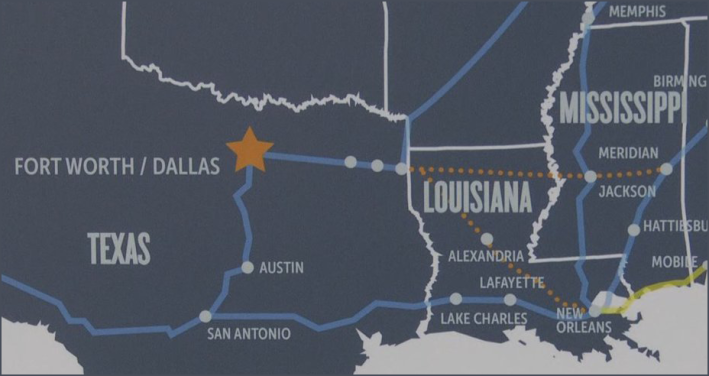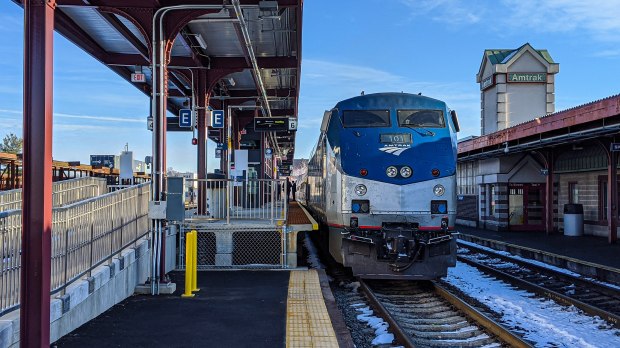Two powerhouses of passenger trail transport — the Southern Rail Commission and Amtrak — said they will seek funding towards one day restoring service along the Interstate 20 corridor between Fort Worth and Meridian, Miss., a 500-mile link that has been dormant for decades.
“This has the potential to be the first new Amtrak service of its kind in more than 25 years and it would come in an area that has long been underserved by passenger rail,” SRC Chairman Knox Ross said in a press release announcing the effort to get Federal Railroad Administration funding for a study.
If the study ultimately recommends expanding rail service to the corridor, Amtrak has already secured a willing partner in Canadian Pacific, one of two freight operators in North America to earn an “A” on Amtrak’s host railroad report card. Better still: CP recently received approval to merge with Kansas City Southern, which shares ownership of the tracks between Meridian and Dallas/Fort Worth with Norfolk Southern (Norfolk Southern received a “D-” on the hosting report card).
“We believe this merger will have a significant and positive effect on Amtrak intercity passenger rail service,” Amtrak CEO Stephen Gardner said in a March 15 statement that referred not only to service on the I-20 corridor but also a passenger rail link between Baton Rouge and New Orleans on tracks also now owned by Canadian Pacific.
Why is this so crucial?
For a belt of mid-sized cities and small towns in the heart of the Deep South, passenger rail has been dormant for decades. It was dealt what seemed a poetic death knell when Shreveport, Louisiana’s Union Station burned down two days after its final passenger service in November of 1969.

But as they say, in the south, the past is never dead, nor even past.
Transportation For America credited the latest effort to the 2021 Infrastructure Investment and Jobs Act, which provided $66 billion in federal funding for rail. The I-20 corridor is "one more arrow in the economic quiver for small and midsize communities across the Deep South," the group's Executive Director Beth Osborne said.
For T4A's Chairman John Robert Smith, it's especially personal. During his 16 years as mayor of Meridian, conservative politicians, including those inside the Bush administration, did not see the I-20 corridor as a priority nor were they supporters of Amtrak, he said.
But after passage of the bipartisan Infrastructure Law, politicians from both sides of the aisle representing Louisiana and Mississippi are cheering the prospect of increased rail service in the region. Smith, whose Zoom background is the multimodal Meridian Union Station that he helped renovate, added that advocates have a role to play as well, lobbying elected officials to provide choices in transportation.
“Local governments invest in choices for the people that [they] serve,” Smith said.
He also called on state and federal officials to “be a partner with us localities that are trying to provide transportation choice for those who absolutely need it, because a private automobile is an expense they cannot carry … or for those who want a safer choice and a better way to be connected. And then [localities] have to invest in infrastructure that is safe and provides that choice.”
Beyond the Deep South, Smith pointed to the significance of the announcement for the country as a whole.
"This announcement becomes the bellwether for other such expansions of long-distance passenger rail, such as in Montana and Idaho and Oregon, or in the southwest or in Georgia," he said. "There are many states that have an aspiration for the expansion of passenger rail. What's important for the rest of the country is this is happening in the Deep South. You add another train in California, you add another train in New York, that's not a story.
"But Mississippi and Louisiana and conservative elected officials coming together and saying, ‘We don't want to miss this opportunity. This is our economic development. This is connecting my people.’ That's a story.”






